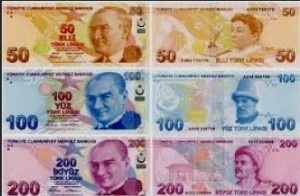Jamie Dettmer writes: Turkey needs to stem money laundering and to stop traders in Turkey buying smuggled oil from the Islamic State.
For years, Ankara has fallen foul of international money-laundering agreements, and despite passing a law last year aimed at preventing the financing of terrorism, Turkey remains on a global list of uncooperative countries. It languishes on what is known as the gray list overseen by the Financial Action Task Force, an inter-governmental body.
The G7-founded body, which is tasked with implementing global standards to counter illicit financing, says Turkey has a weak framework for identifying and freezing terrorist assets. With the U.S. gunning for ISIS and determined to hit its funding, Turkey will be pushed to play its part on hitting the militants in their wallets.
From racking in millions in ransom money for Western hostages to trafficking in rare antiquities looted from museums and archaeological sites in Syria and Iraq, militants of ISIS have turned their jihad into a cash cow and become terror tycoons. Analysts say they are the world’s first self-funding terrorist organization and, unlike al Qaeda, don’t need to go cap-in-hand to wealthy sympathizers in the Gulf—although they don’t say “no” when offered donations.
Depriving ISIS of its oil revenue is going to be a monumental task. Hitting a dozen rudimentary refineries isn’t going to undercut the group, according to analysts.
Even more than bombing, a key component in stopping ISIS from profiting from oil will be blocking militants from getting their oil to market by locking up the border with Turkey and Jordan and pressing Kurds to stop dealers in semi-autonomous Kurdistan from trading. The Turks have shown little enthusiasm for halting the trafficking in the past, although in recent weeks they have interdicted some tankers carrying illicit oil.
Western and Iraqi officials were given a good rundown on where the militants’ wealth comes from when ISIS computers and databases were seized by Iraqi intelligence officers from the Mosul home of an ISIS courier, Abdulrahman al-Bilawi, a few days before jihadists overran the northwestern Iraqi city. The breakdown of the group’s financial resources shocked even senior Iraqi officials and it suggested ISIS was worth more than $800 million even before it added loot pillaged in Mosul to its coffers.
The databases revealed ISIS is receiving cash not only from oil trafficking but also from selling to overseas traders, other Syrian insurgent groups and even the Assad regime. It is also reaping profits from selling industrial machinery from plants and factories pillaged in Aleppo, priceless antiquities stolen from archaeological sites and museums, and cars and weapons captured from the Syrian army.
ISIS leaders on the ground prioritize quickly what is to be looted when they capture new territory, and there is strict management of resources.

